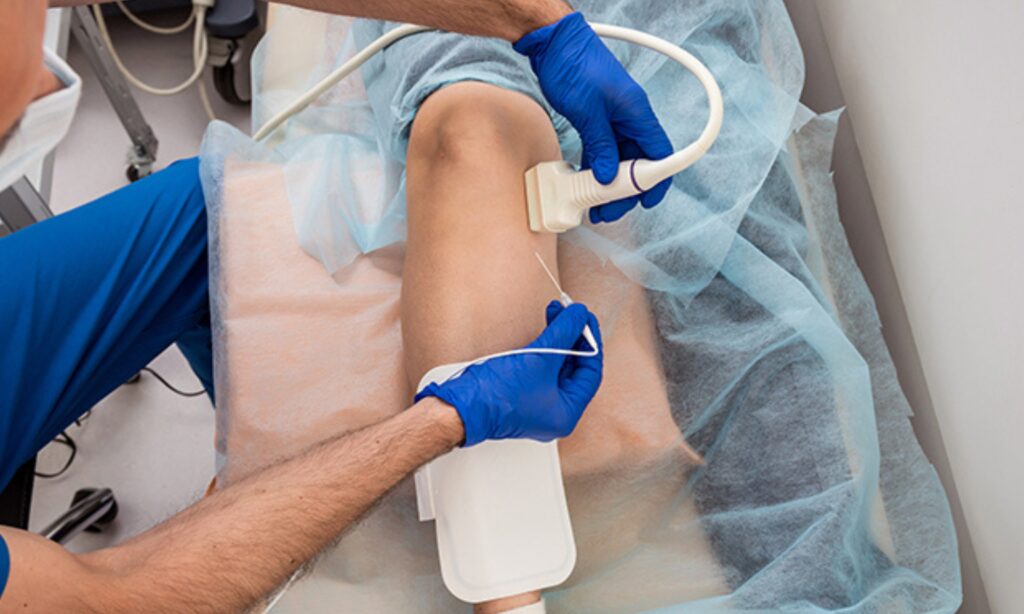Radiofrequency Ablation (RFA) represents a significant leap in medical technology, particularly in vascular and pain management treatments, including venous treatment. At Monterey Bay Vascular, we harness this innovative technique to offer our patients a minimally invasive yet highly effective treatment option for various venous conditions. This article provides a comprehensive guide to understanding why RFA at Monterey Bay Vascular is an excellent choice for those seeking efficient and effective medical care in venous treatment.
What is Radiofrequency Ablation (RFA)?
Radiofrequency Ablation is a minimally invasive medical procedure that utilizes radio waves to generate heat and selectively destroy abnormal tissues in the body. This procedure is particularly effective in the treatment of various medical conditions, such as chronic pain, varicose veins, and some forms of cancer. During the procedure, a small needle is inserted into the affected area, and an electrode is introduced through the needle. The electrode is then heated, generating a high-frequency electrical current that precisely targets and destroys the problematic vein.
How Does RFA Work?
In RFA, an electrode is inserted into the targeted area. It generates radiofrequency energy that heats and destroys the problematic tissue when activated. This process is controlled and precise, ensuring minimal impact on surrounding areas.
Benefits of RFA
RFA’s numerous benefits include reduced pain, shorter recovery times, and minimal scarring. It’s a game-changer for patients looking for an effective treatment without the drawbacks of traditional surgery.
RFA with Monterey Bay Vascular
Monterey Bay Vascular is a modern and patient-centered medical center that adopts Radiofrequency Ablation (RFA) to provide the best outcomes for its patients. Our experienced team, state-of-the-art facilities, and successful treatments ensure your RFA journey is smooth, effective, and tailored to your needs.
Advantages of RFA at Monterey Bay Vascular
- Minimally Invasive Approach: Less pain and quicker recovery.
- Targeted Precision: Precision targeting of affected areas.
- High Success Rates: Significant improvements with minimal complications.
- Rapid Recovery: Quick return to daily routines.
- Improved Aesthetic Outcomes: Smaller incisions and less scarring.
Other Treatment Options at Monterey Bay Vascular
In addition to Radiofrequency Ablation, we offer various treatments for venous diseases. These include:
- Sclerotherapy: For smaller varicose and spider veins.
- Venaseal: A minimally invasive procedure using medical adhesive.
- Micro Phlebectomy: Effective removal of more prominent varicose veins.
- IVC Filter: A device to prevent blood clots.
- Thrombectomy: A surgical procedure to remove blood clots.
At Monterey Bay Vascular, we offer tailored treatments for each patient, ensuring the highest quality of care and the best possible outcomes. For more information or to schedule a consultation, visit our website.
Get in Touch for RFA Treatment
Are you looking to explore your options for Radiofrequency Ablation (RFA) treatment? Monterey Bay Vascular is your trusted partner in vascular health. Contact us book an appointment and embark on your journey towards improved well-being with our advanced RFA solutions. Let’s take that step together towards a healthier, more comfortable future.
- Salinas Office: +1 831-534-9611
- Aptos Office: +1 831-851-1220
- Website: Monterey Bay Vascular’s Official Website
Our Vascular Surgeon
Dr. Mazen Hashisho, with triple board certification in Vascular, General, and Thoracic Surgery, completed his residency at The University of Iowa Medical Center and fellowships in cardiothoracic surgery at Albert Einstein College of Medicine, and vascular surgery at The Loma Linda University Medical Center, including a year in minimally invasive thoracic surgery. He has extensive experience in both clinical and academic settings, contributing to numerous publications. Dr. Hashisho specializes in a range of procedures, including dialysis access, peripheral arterial disease, venous insufficiency, carotid, aneurysmal disease, and minimally invasive thoracic and abdominal surgeries, making him well-equipped for complex surgical cases.
Related Articles to Read
Consider reading these articles for more information on vein health and related topics:
